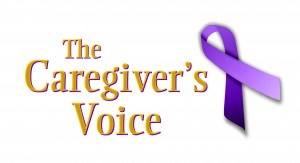When The Caregiver’s Voice answers questions for the media; the answers can also inform you. Three topics are answered briefly below:
- Elder Care options
- Caring for a loved one without jeopardizing your job
- Use of restraints
 QUESTION: What are the elder healthcare options for those who have the resources to pay privately?
QUESTION: What are the elder healthcare options for those who have the resources to pay privately?
The Caregiver’s Voice answers: The continuum of care choices include –
- In-home care (by a family member or hired help)
- Adult Day Care (from several hours in a day for respite to one to five days a week)
- Residential care (small care home with a handful of residents)
- Assisted Living
- Skilled Nursing Care
Oftentimes, we find ourselves suddenly forced to make quick and uncomfortable decisions about care for a loved one with an illness.
Learning as much as possible about our loved one’s disease or illness in advance, will leave us better prepared and less stressed when the time comes to take action. Talk with caregiver friends, search the Internet, talk with your loved one’s doctor, and decide which of the above options (or a combination of) is best for your loved one and you.
Long term care insurance and other funding sources (agencies, Medicaid/Medical) may help defray some of the costs of the choices above.
QUESTION: How do you ensure your job is not jeopardized when you need time off to care for a loved one?
The Caregiver’s Voice answers: It’s not an easy answer but one that can be worked out with cooperation of co-workers and the employer.
Like a parent caring for a child, when an elder loved one has an emergency and you are the sole caregiver, what are your options?
- Do you leave to care for your loved one?
- Have you made prior arrangements with a helpful and willing neighbor, friend, or family member?
- Do you have an employer who understands and allows you the flexibility to make up the time / work?
Sure there’s the Family and Medical Leave Act [URL updated 5/11/2020]granting employees twelve weeks of unpaid leave without risk of losing their jobs. But read the guidelines closely. Can you afford to go three months without pay in today’s economy?
Read the last answer to first question above–gain knowledge, know what to expect, develop support networks in order to balance work and caregiving.
Then work with your employer and your support network of family, friends, church members, neighbors, and others. Keeping your employer apprised of your at-home challenges while reminding him/her of your commitment to being a productive member of the team will help allay his/her fears about your loyalty and your continued performance. You can then work together to find appropriate solutions given your job responsibilities–such as flextime, working from home, job sharing, or even temporary leave.
There are only so many hours in a day. And you have so much energy. We are humans knit by common experiences working together to overcome to life’s ongoing challenges.
QUESTION: Can you comment on the use of restraints on the elderly?
Brenda Avadian answers: After my father began falling frequently and started using a wheelchair, his cognitive ability (due to Alzheimer’s) had declined enough where the different colored tiles along the nursing home hallway confused him. He’d focus on a dark spot then reach down to “pick it up” and fall out of his chair. I’d get a call each time and later see the bruises on his arms as he tried to break his fall.
Fearing a worse outcome should he break his wrist or arm, I requested the use of restraints.
The best option is constant loving attention for our elder loved ones. Regardless of what we say, this is impossible 24/7. Even at home, the moment you step away to use the bathroom, your loved one falls and gets injured. Knowing this, we seek workable alternatives.
After my father was restrained with a pelvic posey and fell with the wheelchair, I requested privately paid sessions with a physical therapist, alternated with supervised time in a wheelchair or a geri-chair with a tray in front to keep my father’s focus off the floor. The staff situated him in front of the nurses’ station where he could “keep an eye on things.” He focused so intently on the nurses with their brightly colored lipstick that he forgot about picking up dark spots from the floor.
For additional information click on: “Use Restraints with Caution” in Aging Well Magazine.
Brenda Avadian, MA
Alzheimer’s / Dementia Caregiver, Expert Spokesperson, Coach, and Author
Editor, TheCaregiversVoice monthly Newsletter and The Caregiver’s Voice Book Review








